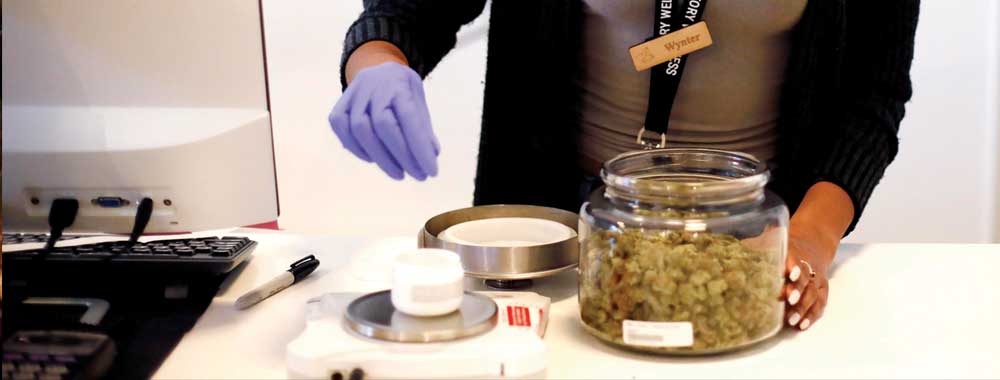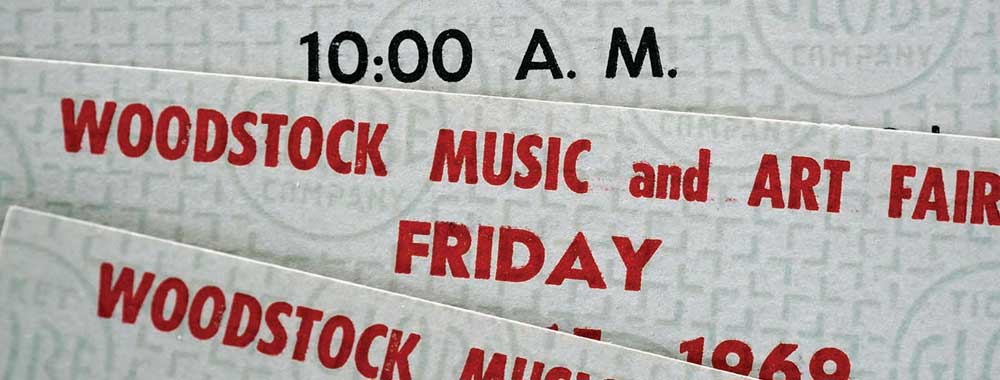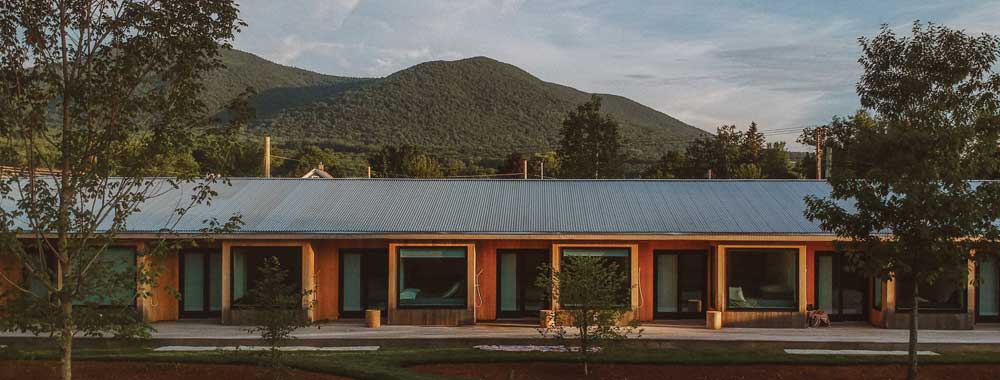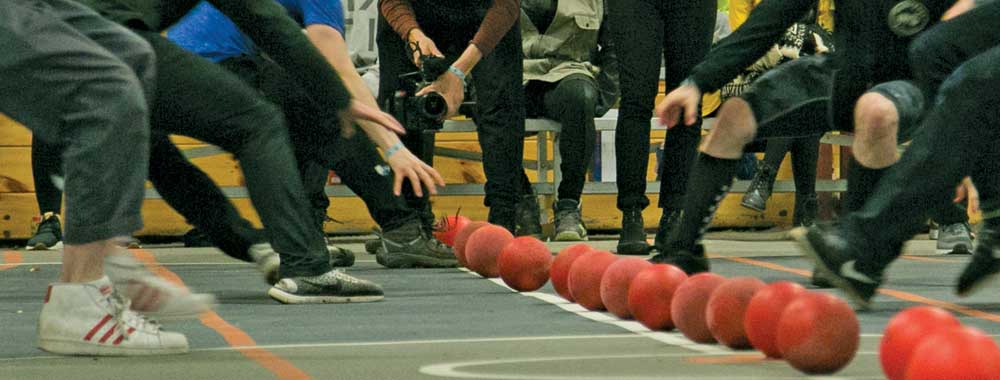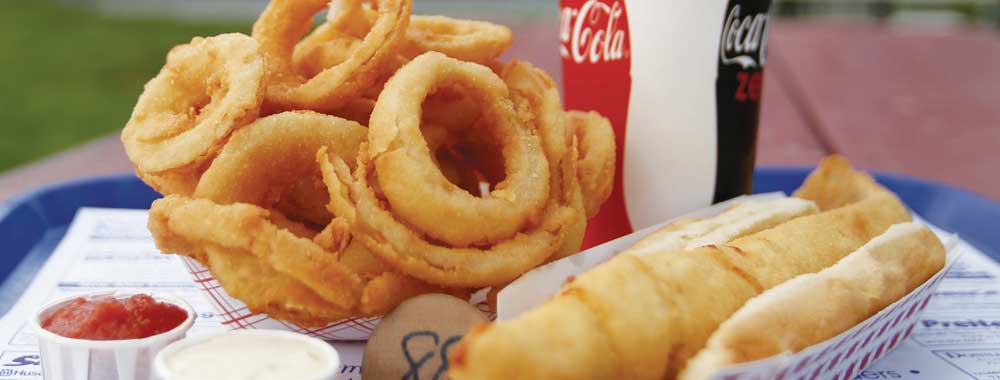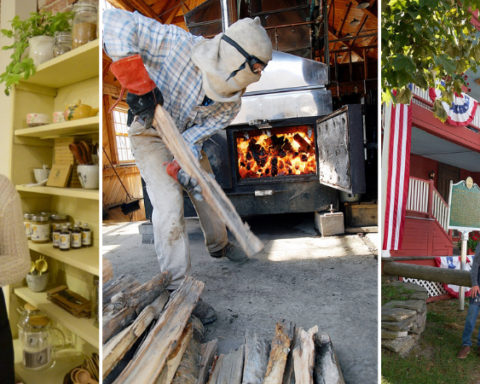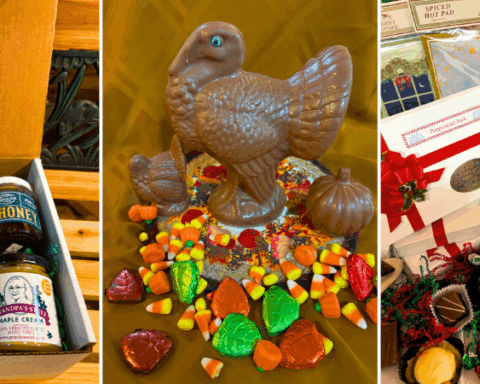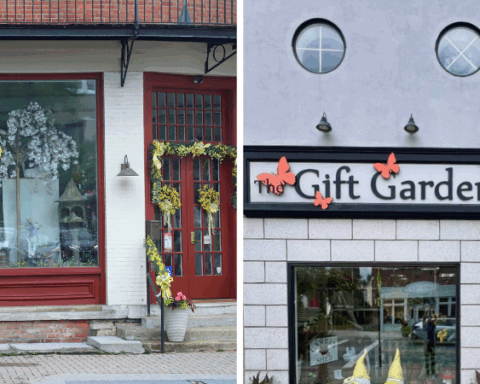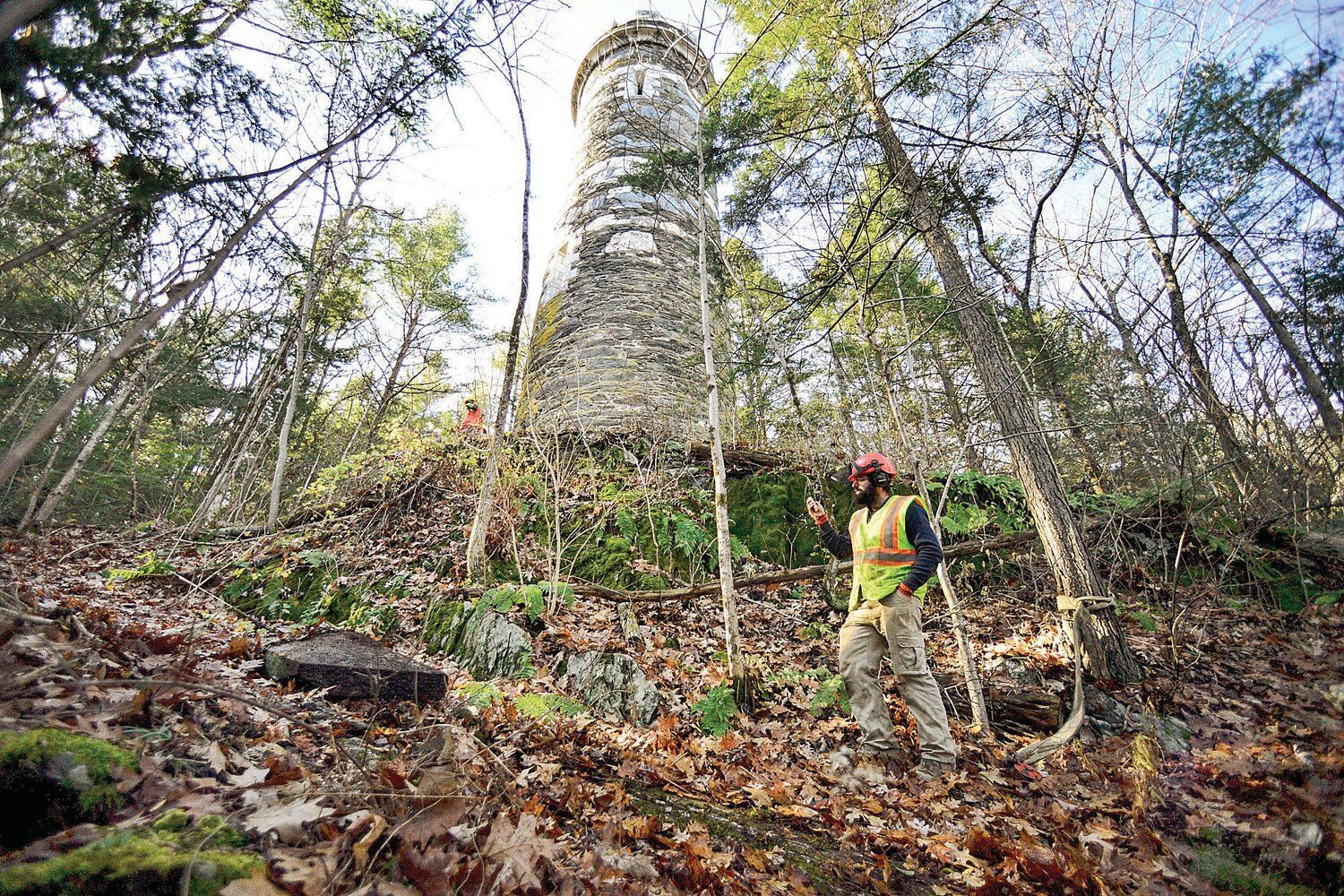A buyer’s guide for purchasing legal marijuana in the Berkshires

By Kristin Palpini
GREAT BARRINGTON, Mass.
Even though recreational marijuana is legal in Massachusetts, Henry still has to stand around in a parking lot to buy his weed.
On a spring morning in March, Henry, dressed in sweatpants and a T-shirt, stands outside Theory Wellness in a line of about 50 other people that snakes around the building and parking lot.
He remembers that not too long ago, getting pot meant calling up a dealer, setting a meeting and hanging out in a random parking lot until he showed up with the stuff. Henry would give the guy the cash, get something green in a bag and everyone would go their separate ways.
“You’d be waiting and there was always anxiety, nervousness with it,” says Henry, who is in his late 30s. “This is so, so much better.”
Nate, who is standing in line with his friend Henry, says he preferred meeting his dealer in a parking lot over going to the guy’s house, which comes with obligatory hanging out post-sale.
“You’re in, you’re out and you don’t have to listen to some guy play his acoustic guitar,” Nate says. “No, I don’t want to hear the song you wrote for your girlfriend, can I just go?”
(Henry and Nate, not their real names, requested anonymity before talking about how they used to buy illegal weed.)
Purchasing cannabis has drastically changed in Massachusetts since legal recreational sales began in November. Though some people are still buying the old-fashioned — and illegal — way, many are enjoying pot shopping in a retail environment.
Still, the experience is foreign for a lot of people new to the drug or unaccustomed with dispensaries. Now that marijuana sales have moved beyond buying whatever the dealer is selling, each purchase comes with choices to make — strain, potency, to smoke or not to smoke?
If you haven’t hit up one of the recently opened pot shops in the Berkshires, but it’s on your list of things to do, here are some of the things you should know before buying legal weed:
Bring cash
Due to the federal ban on marijuana, many national and state-chartered banks that are federally insured (Federal Deposit Insurance Corp.) don’t want to jeopardize that benefit by getting involved with federally illegal marijuana. Credit unions are insured by the Credit Union National Association, which is similar to the FDIC but provides more flexibility dealing with marijuana-related businesses and banking. Most dispensaries will accept cash and debit cards.

Preorder
Theory Wellness often has a line of jolly people waiting to get inside, but people can skip the wait by preordering through the dispensary’s website. There’s no additional charge, and the last order for the day is accepted at 5 p.m.
Know what you want
What do you want to get out of your marijuana experience? There are weed strains grown to address just about anything: some promote creativity and concentration, decrease anxiety, ease muscle pain, aid sleep or jump-start the morning. It’s not all hazy happiness, though. Some strains are more prone to cause anxiety, headaches or drowsiness.
How to choose the strain
Dispensary budtenders have developed a good reputation for being helpful in Massachusetts. Most are trained in how to guide customers through the buying experience and answer marijuana-related questions about dosage and effect.
Decision number one is choosing between the three main types of marijuana: indica, sativa and CBD. Indica provides a more relaxed, sleepy high, while sativa is more energetic. CBD-only strains won’t produce a high but are said to reduce inflammation and anxiety.
Dispensaries sell dominant and hybrid strains of all three. After you know the effect you’re looking for, look up the dispensary’s menu online or at the shop. Read the descriptions and get whatever sounds fun and/or useful.

How to read the labels
For a more in-depth selection process, you can get good at reading labels and chemical makeup. Due to state law, all marijuana items sold must have a label that says where the weed came from, the date it was sold, who tested it and the chemical makeup of the drug. The chemicals to pay attention to are THC and CBD. Most strains will contain 5% to 25% THC. A THC content of 5% is considered light, even for a first-time smoker. Marijuana that is 25% THC and above is heady business. With CBD, the higher the concentration, the better, and anything above 15 percent CBD is a good find.
Beyond smoking
Cannabis shops contain far more products than standard marijuana flowers. There are edibles, vape oils, lotions, tinctures, concentrations and pre-rolled joints, to name a few options. If you don’t like the idea of putting smoke/vapor in your lungs, there are edibles and pills containing marijuana at various concentrations, as well as topical lotions. Typically, the smallest dose in an edible is 5 milligrams of active marijuana chemicals. If you haven’t tried marijuana yet or it’s been years, eat a quarter of that, wait a half-hour and see how you’re feeling before eating more.
If you want to try vaping weed, retailers have you covered. Stores typically sell vape oil disposable pens starting at $25 to $35. Simply take the pen out, put your mouth on it and inhale — there are no buttons to push or charges needed for disposables. Oil cartridges are sold in larger doses than the disposables, but require the one-time purchase of a battery, which will cost $10 to $20 and is rechargeable. It’s oil, sure, but it can still make you cough if you hit it too hard. Vaping dry weed is fairly smooth but involves a hefty investment, with flower vapes starting around $100.
Other forms of weed to buy include shatter and wax — highly concentrated forms of marijuana not suitable for people who aren’t regular tokers. Unprocessed buds and keef — chemical-rich crystals taken off the green flowers — are still popular at dispensaries, and some stores will cut customers a discount on purchasing “shake” — old, bottom-of-the-barrel weed that features tiny buds. If you don’t see this advertised, ask the cashier.

Wait until you get home
Cannabis cannot be consumed at the site of purchase or anywhere public. To legally enjoy marijuana, it has to be taken at a private location where the owner is cool with weed. Massachusetts has yet to establish rules for marijuana cafes where people could go to enjoy cannabis. Keep your weed in the sealed container you bought it in while in transit. According to state law, marijuana must be kept in a locked glove compartment or in the trunk of a vehicle during travel. Due to federal restrictions, the drugs cannot be taken across state lines, even if the destination state has legalized recreational cannabis.
Medicinal marijuana has priority
Dispensaries reserve some of their inventory to ensure medical patients will still have access to marijuana despite the increased demand now that recreational sales are possible. The stores will also often have a separate — and shorter — line for people with their Massachusetts medical marijuana cards.
It’s going to be expensive
A dime bag doesn’t cost $10 anymore, man. Until more shops open in Massachusetts, creating competition, the weed prices will be high. Plus, the taxes on recreational weed in Massachusetts add up to 20% of the purchase price. The $50 one-eighth of an ounce of weed you buy in a store, that would cost about $40 on the street, will have another $10 in taxes tacked on to it. That’s a total of $60 for one-eighth — $20 more than what’s available on the black market. It’s a lot, but it’s more ethical — you know whom you’re buying from — legal and fun. Who doesn’t want to feel like a big kid in a funky candy store? Plus, dispensaries accept coupons and have sales — when’s the last time a dealer did that? Sign up for dispensary newsletters to get advanced notices of cannabis sales. •
Further reading
Changing Tastes: As the cannabis industry changes, so does the flavor of weed.
What’s happening around New England: Legal shifts across the region
Kristin Palpini Is a Western Massachusetts journalist with more than 15 years experience. She was the editor of the Valley Advocate before coming to The Berkshire Eagle in 2017. Palpini loves to travel, say “ya’ll” more than any MA-native should, and research.
